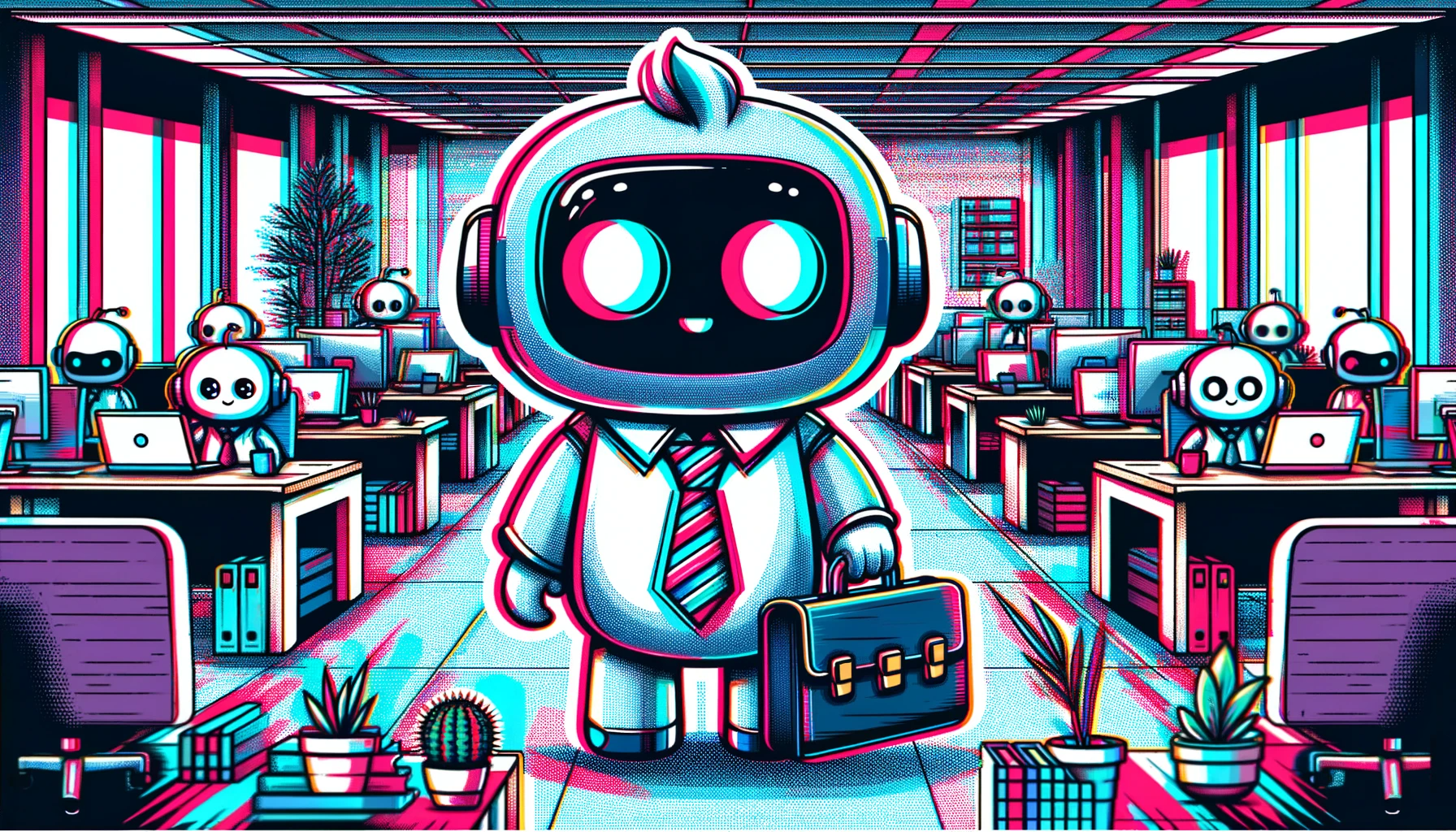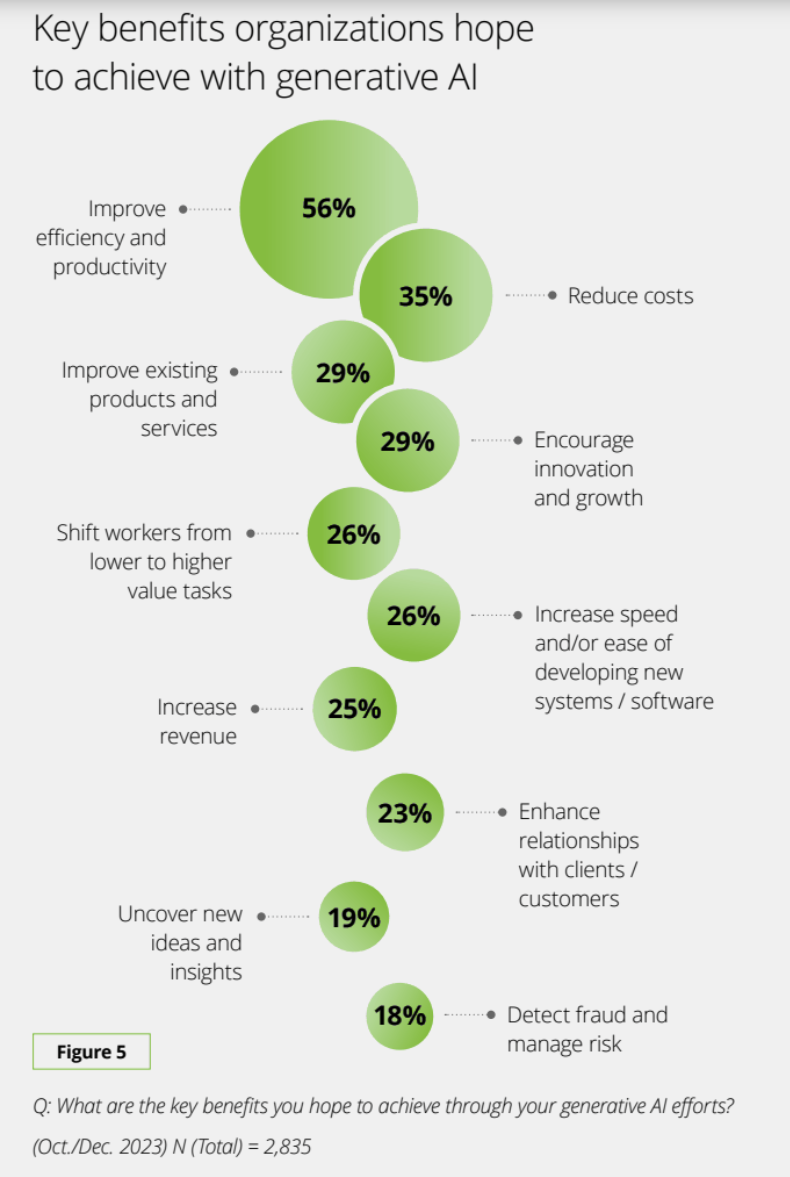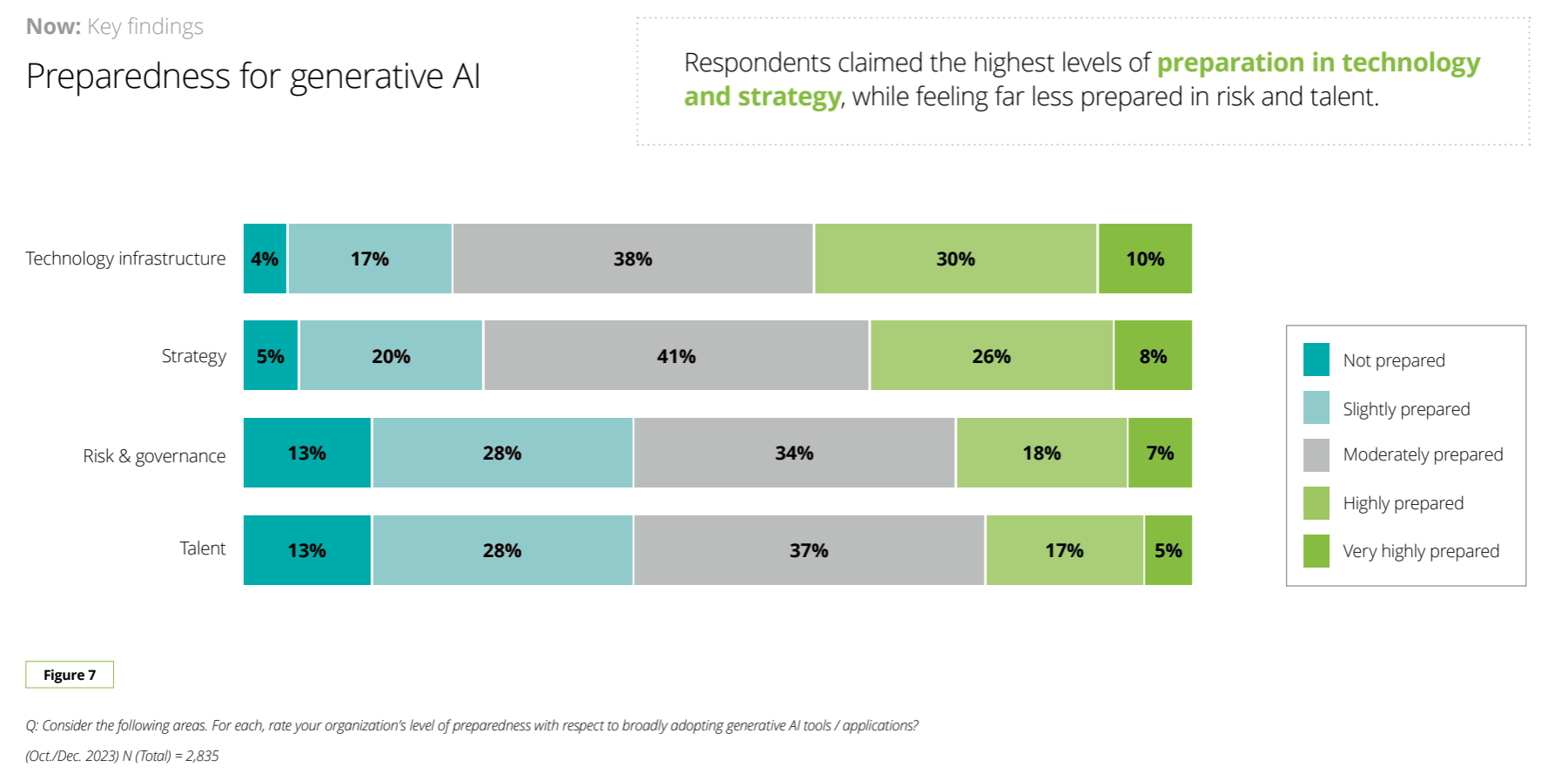91 percent of enterprise AI leaders believe generative AI can drive efficiency

Deloitte surveyed 2,835 business and technology executives involved in implementing generative AI in their organizations.
Some 62 percent of respondents said they are enthusiastic about the technology. However, this enthusiasm is tempered by a degree of uncertainty, cited by 30 percent of respondents.
Executives believe that generative AI will lead to significant changes in their companies and industries over the next three years. Some 79% of respondents expect significant changes, with 31% expecting them in less than a year.
According to the study, 44% of respondents believe their company has a high or very high level of expertise in generative AI. Companies that report a very high level of expertise are more positive about generative AI, but also feel more pressure and threat.
Generative AI is primarily aimed at improving efficiency; off-the-shelf applications dominate
Current approaches to generative AI are geared toward efficiency, productivity, and cost reduction rather than innovation and growth.
Approximately 56% of companies are looking to increase efficiency and productivity, while only 29% are seeking strategic benefits such as innovation and growth. 91% of respondents believe in efficiency gains from generative AI, including 27% who believe in significant productivity gains.

Most organizations rely primarily on off-the-shelf generative AI solutions. These include productivity applications with built-in generative AI (71%), enterprise platforms with built-in generative AI (61%), off-the-shelf generative AI applications (68%), and publicly available large language models (56%).
Critical topics include talent, governance, and AI risks. Some 41 percent of executives say their organizations are only minimally or not at all prepared for these challenges to generative AI adoption.

52% of respondents expect the widespread use of generative AI to centralize power in the global economy, and 51% expect economic inequality to increase.
In light of these concerns, 78% of executives believe stronger government regulation of AI is needed. 72% believe there is not enough global cooperation to ensure the responsible development of AI systems.
AI News Without the Hype – Curated by Humans
As a THE DECODER subscriber, you get ad-free reading, our weekly AI newsletter, the exclusive "AI Radar" Frontier Report 6× per year, access to comments, and our complete archive.
Subscribe nowAI news without the hype
Curated by humans.
- Over 20 percent launch discount.
- Read without distractions – no Google ads.
- Access to comments and community discussions.
- Weekly AI newsletter.
- 6 times a year: “AI Radar” – deep dives on key AI topics.
- Up to 25 % off on KI Pro online events.
- Access to our full ten-year archive.
- Get the latest AI news from The Decoder.